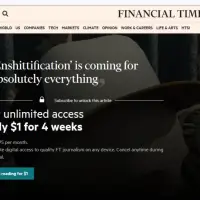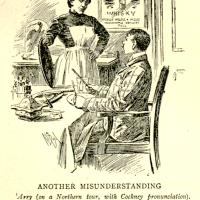 Today I’d like to feature a reflection by podcaster Levi Nunnink. Aspiring artists Levi Nunnink and Rosalyn Lee host the Culturezoo podcast. Levi and Rosalyn will read a comic, watch a movie, or read a book and discuss it in detail–sort of like a family-friendly close reading book club that includes movies and comics too. After digging into things like Star Wars, Howl’s Moving Castle, and The Hobbit, they have just concluded a series on Out of the Silent Planet–one of our favourite books here on A Pilgrim In Narnia—so I invited Levi to give some thoughts on his reading. I think Levi’s reflection and the free podcast worth sharing with readers, so I hope you enjoy!
Today I’d like to feature a reflection by podcaster Levi Nunnink. Aspiring artists Levi Nunnink and Rosalyn Lee host the Culturezoo podcast. Levi and Rosalyn will read a comic, watch a movie, or read a book and discuss it in detail–sort of like a family-friendly close reading book club that includes movies and comics too. After digging into things like Star Wars, Howl’s Moving Castle, and The Hobbit, they have just concluded a series on Out of the Silent Planet–one of our favourite books here on A Pilgrim In Narnia—so I invited Levi to give some thoughts on his reading. I think Levi’s reflection and the free podcast worth sharing with readers, so I hope you enjoy!
 As a lifelong reader of C.S. Lewis and his Space Trilogy, in my estimation, the first novel Out of the Silent Planet was enjoyable but the most “slight” of the trilogy: an initial foray into themes that Lewis would develop more fully in the subsequent novels. Recently on my podcast we decided to read through Out of the Silent Planet chapter by chapter. Once we began, I realized I had been wrong. Lewis’s “slight” first novel is a subtle but piercing critique of enlightenment ideas, a master example of world building, and a meditation on the fear of death, all packaged up as a ripping sci-fi adventure.
As a lifelong reader of C.S. Lewis and his Space Trilogy, in my estimation, the first novel Out of the Silent Planet was enjoyable but the most “slight” of the trilogy: an initial foray into themes that Lewis would develop more fully in the subsequent novels. Recently on my podcast we decided to read through Out of the Silent Planet chapter by chapter. Once we began, I realized I had been wrong. Lewis’s “slight” first novel is a subtle but piercing critique of enlightenment ideas, a master example of world building, and a meditation on the fear of death, all packaged up as a ripping sci-fi adventure.
It’s not an exaggeration to say that existential dread looms in the psyche of Westerners since the dawn of the 20th century. From the threats posed by nuclear bombs, and global warming, to the terrifying ambitions of states like Soviet Russia or Nazi Germany most of us in the west have grown up with the suspicion that if bombs didn’t kill us quick, the planet would kill us slow. It’s unsurprising that this dread dominates our speculative literature, perhaps best exemplified in “Lovecraftian Horror” where characters regularly encounter powerful, dark, alien forces that are vastly beyond their ability to defeat or even comprehend.
 The human characters in Out of the Silent Planet (Ransom, Weston and Devine) also face existential dread and encounter powerful alien forces beyond their comprehension but with a surprising twist: The alien “gods”, or eldila, in Lewis’s universe are benevolent and bright, not evil and dark. The Martians of this story don’t rampage on mechanical tripods but write poetry. And instead of humans grappling with physical and technological inferiority (à la Battlefield Earth) they must battle their moral inferiority. By spiriting humanity to an alien world, Lewis cunningly turns the mirror back on ourselves. Our problem, Lewis suggests, is not powerful forces outside of us, but our own “bent” nature and fear of death. As Oyarsa says, humans are
The human characters in Out of the Silent Planet (Ransom, Weston and Devine) also face existential dread and encounter powerful alien forces beyond their comprehension but with a surprising twist: The alien “gods”, or eldila, in Lewis’s universe are benevolent and bright, not evil and dark. The Martians of this story don’t rampage on mechanical tripods but write poetry. And instead of humans grappling with physical and technological inferiority (à la Battlefield Earth) they must battle their moral inferiority. By spiriting humanity to an alien world, Lewis cunningly turns the mirror back on ourselves. Our problem, Lewis suggests, is not powerful forces outside of us, but our own “bent” nature and fear of death. As Oyarsa says, humans are
“wise enough to see the death of their kind approaching, but not wise enough to endure it”.
Perhaps this is best exemplified in the character of the great physicist, Weston (a very evocative name choice by Lewis) and his mission to “save humanity”. He builds the spaceship to Malacandra not for personal gain but so mankind will survive past our extinction date. But for all his talk of saving humanity, Weston doesn’t love any humans. He desperately wants immortality for nobody in particular. Weston’s final comeuppance is soundly delivered when he refuses to recognize Malacandra’s inhabitants as anything more than “savages” for conquest and we see that the great westerner is only running from his fear of death. He is revealed to be nothing but a savage himself, babbling in pidgin English, no less.
 Ransom also spends most of this novel literally running from death. He’s especially terrified of the Sorns, convinced of their evil intentions. The irony is that, despite his terror, nobody on Malacandra means Ransom any harm. He enters Malacandra struggling for survival amidst abundance, fighting against “enemies” that only wish his well-being. The difference between Weston and Ransom is that Ransom finally surrenders himself to “the enemy” and becomes far better for it. He ends the story humbled but braver and more like a noble Malacandran.
Ransom also spends most of this novel literally running from death. He’s especially terrified of the Sorns, convinced of their evil intentions. The irony is that, despite his terror, nobody on Malacandra means Ransom any harm. He enters Malacandra struggling for survival amidst abundance, fighting against “enemies” that only wish his well-being. The difference between Weston and Ransom is that Ransom finally surrenders himself to “the enemy” and becomes far better for it. He ends the story humbled but braver and more like a noble Malacandran.
“Men must endure their going hence” is written on C.S. Lewis’s gravestone. This idea dominates Out of the Silent Planet. Lewis isn’t advocating a fatalistic, suicidal embracing of death but rather a Christian surrender to the life that comes by dying; the paradox epitomized in The Gospel. In the universe that Lewis presents, mankind’s greatest problem is not being overcome by forces greater than ourselves, but our vain refusal to be overcome. As Lewis later would remark in The Great Divorce,
“There are only two kinds of people in the end: those who say to God, ‘Thy will be done,’ and those to whom God says, in the end, ‘Thy will be done.’”
 If you’d like to hear more of our discussion on Out of the Silent Planet, you can listen to our podcast on Apple Podcasts or Stitcher. And if you have any comments, please send us your thoughts on Twitter at @czoopodcast.
If you’d like to hear more of our discussion on Out of the Silent Planet, you can listen to our podcast on Apple Podcasts or Stitcher. And if you have any comments, please send us your thoughts on Twitter at @czoopodcast.























Great post with some really meaningful insights, thanks for sharing.
I agree! I wonder if or how much Lewis and Tolkien talked about such things? The Hobbit and The Lord of the Rings (but also ‘Middle-earth’ things he didn’t publish during his lifetime, and other things like ‘Leaf by Niggle’) are also so thoughtful about death – and about ‘mutability’ – the world as it goes on existing and changing in time, but not endlessly. (Maybe the Hobbit podcasts are complementary, here!)
I think that they knew, and we know that – “The sense of meaningful engagement is the deepest of cognitive instincts and “meaningful engagement” is a marker that you are where you should be and doing what you should be doing” [Jordan Peterson]
I argue here that “death” is the keyspring of LOTR, and my PhD thesis is about death, so I do think it’s a relevant question!
I think you forgot to hyperlink the word “here” to where you actually do elaborate on your thesis, I am interested ….
Ha, sorry. Here’s the Keyspring thing: https://apilgriminnarnia.com/2016/05/17/simone-de-beauvoirlotr/.
As far as my thesis, I haven’t elaborated much yet. I’m looking at the images of death and resurrection in C.S. Lewis’ work. Once you see it in play it is pretty resonant. But, more to come!
Excellent and helpful summation. I’ve really enjoyed the podcast, both this “Out of the Silent Planet” series, and the previous film discussions on Miyazaki movies and Ridley Scott’s “Legend.” I should reread the Cosmic Trilogy soon while I have all of this in mind! My first time through, as a teenager, was a bit overwhelming. 🙂
I bet! Thanks for the words and reblog.
Pingback: “Men must endure their going hence”: The Idea of Death in C.S. Lewis’s “Out of the Silent Planet”: Guest Post by Levi Nunnink – The Warden's Walk
Reblogged this on James' Ramblings.
Pingback: 10 Interesting Posts You May Have Missed in July 2018 – Pages Unbound | Book Reviews & Discussions
Pingback: Idea-Seeds in C.S. Lewis’ Letters (Throwback Thursday) | A Pilgrim in Narnia
Pingback: The Tolkien Letters that Changed C.S. Lewis’ Life (On Tolkien’s Birthday) | A Pilgrim in Narnia
Pingback: C.S. Lewis’ 1st SciFi Fan Letters, from Evelyn Underhill and Roger Lancelyn Green | A Pilgrim in Narnia
Pingback: On the Critical Missing Piece from the Best Part of Gary Selby’s Earthy Spirituality: C. S. Lewis and Incarnational Faith | A Pilgrim in Narnia
Pingback: 2019: A Year of Reading: The Nerd Bit, with Charts | A Pilgrim in Narnia
Pingback: C.S. Lewis’ Out of the Silent Planet: A 10 Minute Book Talk with Brenton Dickieson | A Pilgrim in Narnia
Pingback: Never Nude Elwin Ransom of C.S. Lewis’ Classic ScFi, and A Note on Puzzling, Lazy, Irrelevant, Racist, Sexist, and Infelicitous Book Cover Designs (Friday Feature) | A Pilgrim in Narnia
Pingback: A Rationale for Teaching C.S. Lewis’ Fiction in The Wrong Order | A Pilgrim in Narnia